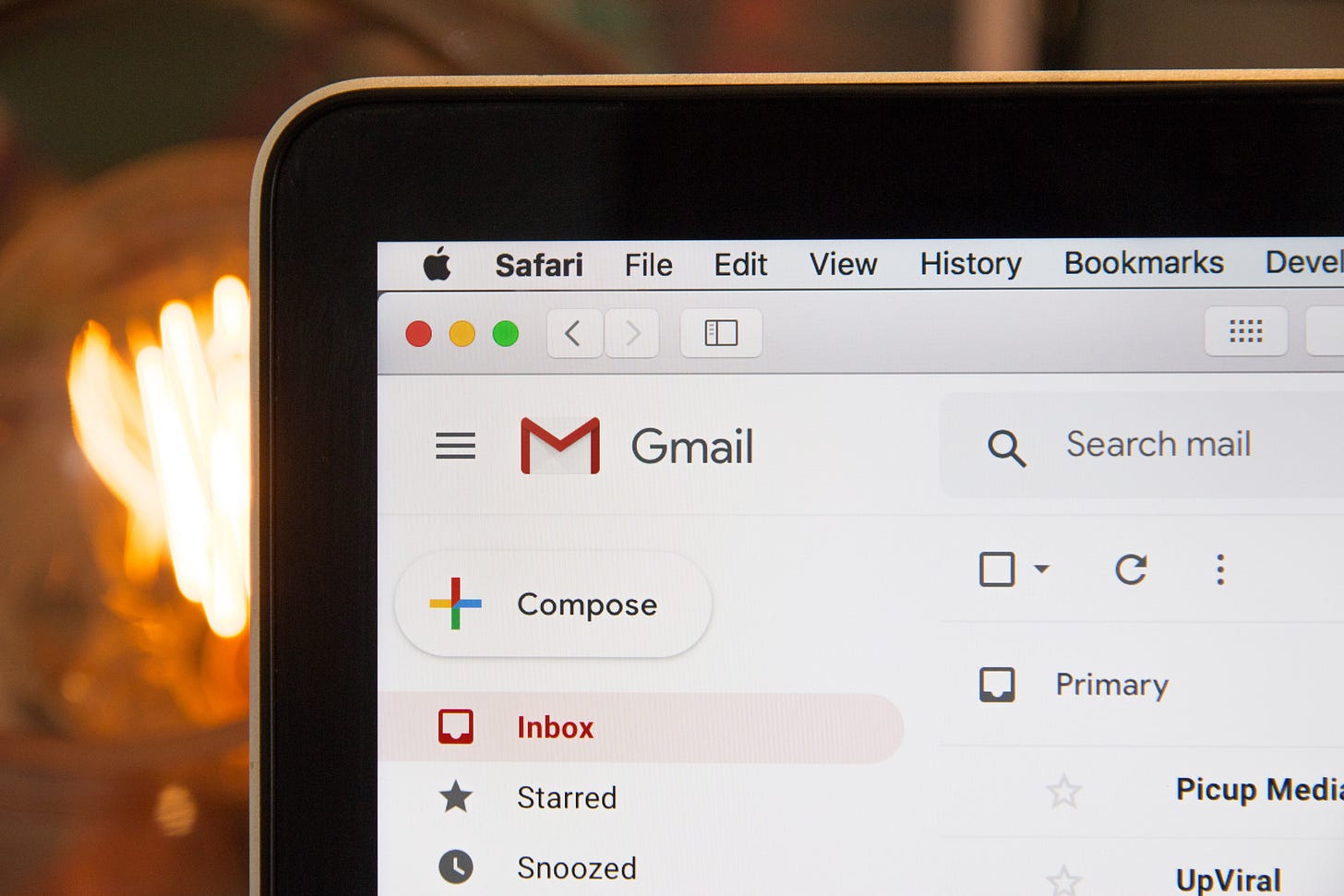Protecting Personal Email Accounts
What to do now and later to protect these assets and your reputation
Leaving directives about personal email addresses upon death is an essential part of estate planning in the digital age. Here are some steps to consider before you even consider leaving directives about your personal email account. Sometimes a little clean-up on the front end can help you decide whether or not to even include your personal email account as part of your will or trust:
Make a list of all your personal email accounts: Make a list of all the email accounts you have, including the email address and password for each account. This list should be kept in a secure place, such as a password-protected digital file or a physical safe.
Designate a person to manage your email accounts: You should designate a person to manage your email accounts in the case of accidental death and you haven’t set directives. Choose a person you trust to follow your directions in the event you die without a will or trust.
Provide instructions on what to do with each email account: For each email account, provide instructions on what to do with the account after your death. This can include deleting the account, transferring ownership to a designated person, or leaving the account open for a specific period. These written instructions are, perhaps, the most important thing you’ll do. You can decide at this point whether or not you need to keep certain email accounts. Sometimes a little clean-up now will create less problems for your beneficiaries down the road.
Consider privacy concerns: It is essential to consider privacy concerns when leaving directives about email addresses. You may wish to delete or close certain email accounts to prevent sensitive information from being accessed by unauthorized individuals. You also may want to cleanup emails lists within that account that you no longer use or that aren’t live.
Decide now what you can eliminate, clean up, or archive: Once you’ve written down instructions about how to handle each account, decide if you really need some of your accounts. If not, delete them. If you need to clean them up and file certain information, do that now. Archives are great for clarity and the emails in your archives can be used by your executor, trustee, or designated person to carry out certain wishes and directives.
Consult with an attorney: You can consult with an attorney, but if this is your first step in determining the worth of your digital assets, I would wait until you have other projects to declare as well. Then, after a consult, you can include your directives in your will or other estate planning documents.
Keep your directives up to date: It is essential to keep your directives up to date as your email accounts may change or you may add new accounts over time. Review your email accounts at least annually or make notes as you make changes to ensure that your directives are current.
If you don’t delete your personal email accounts before you die or have someone conduct that task for you, then email service providers will, eventually, take matters into their own hands. Most popular email providers delete inactive accounts after a certain amount of time. Not all providers work the same or have the same threshold. If no one can gain access to your email account after you die, it will simply continue to exist in the cloud until the provider eventually deletes it.
Of course, there’s a huge difference between personal email accounts and business accounts and email lists. On Wednesday, I’ll explain the differences when it comes to how they play out as assets.





